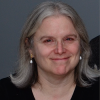
Accountability in Three Realms: Making Learning Visible Inside and Outside the Classroom
PUBLISHED:AUTHORS: Mara Krechevsky, Melissa Rivard, Fredrick R. Burton
Resource Summary
Abstract: This article describes the changing culture of a public school as members of its community explore new ways of being accountable to progressive ideals in an age of skills-based learning and standardized testing. Using documentation makes adult and student learning visible in and outside the classroom, supporting three forms of accountability: (a) accountability to self (looking at what one intended to teach in relation to what actually happened); (b) accountability to each other (contributing to collective learning as well as one's own); and (c) accountability to the larger community (evaluating the relationship between the school's mission and classroom practice). Documentation leads to more intentional and reflective teaching, provides evidence of student learning not represented by standardized tests, and supports the development of a school's identity. The authors conclude that documentation, although not a replacement for standardized tests, is a versatile tool that blurs the line between formative and summative assessment.



-
-
-
-
-
-
Support PZ's Reach